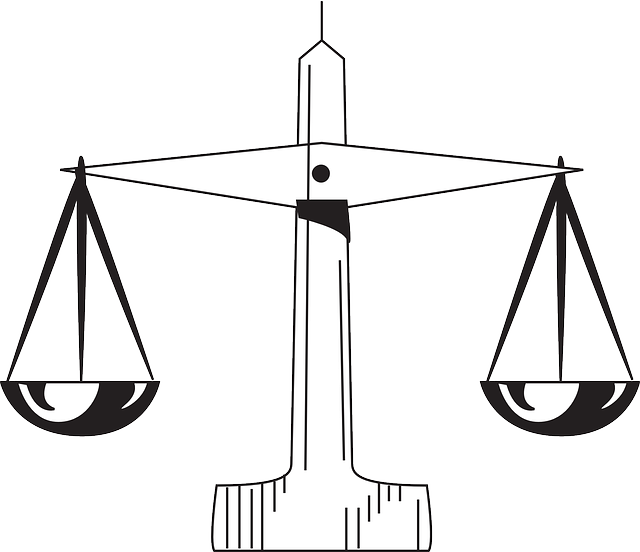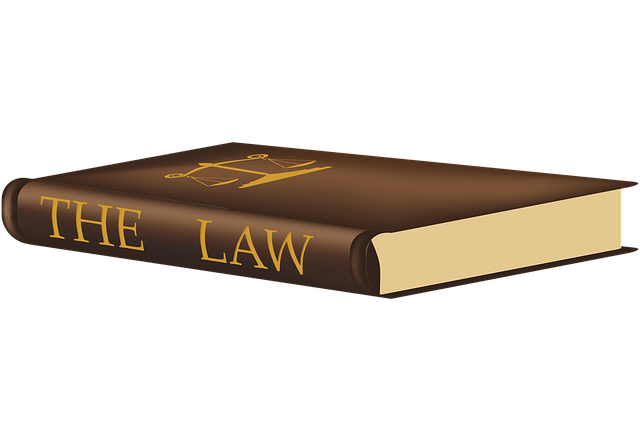
Category: Westminster Colorado Personal Injury Claims
Westminster Colorado Personal Injury Claims: A Comprehensive Analysis
Introduction
In the dynamic landscape of legal and financial services, personal injury claims play a pivotal role in compensating individuals for physical, emotional, or economic harm caused by the negligence or intentional acts of others. This article delves into the specific realm of Westminster Colorado Personal Injury Claims, exploring its intricacies, impact, and evolution within the context of the United States legal system. Westminster, a vibrant city in Colorado, serves as a microcosm for understanding the broader trends and considerations surrounding personal injury litigation. By examining historical foundations, current practices, global influences, economic implications, technological innovations, policy frameworks, challenges, case studies, and future projections, this comprehensive analysis aims to equip readers with an in-depth understanding of this critical legal domain.
Understanding Westminster Colorado Personal Injury Claims
Westminster Colorado Personal Injury Claims refer to the legal process by which individuals or entities seek compensation for damages incurred due to another party’s negligence or intentional misconduct. This includes a wide range of incidents, from car accidents and slip-and-fall injuries on premises to medical malpractice and product liability cases. The core components of such claims involve:
- Negligence: Proving that the defendant owed a duty of care, breached that duty, and directly caused harm to the plaintiff.
- Damages: Quantifying the losses suffered by the plaintiff, which can include medical expenses, lost wages, pain and suffering, and emotional distress.
- Liability: Establishing legal responsibility for the harm caused, often determined through strict interpretation of laws and regulations.
- Compensation: The process of redressing the wrongdone, typically achieved through monetary awards or settlements.
Historically, personal injury claims have evolved alongside societal changes and advancements in legal principles. In the United States, the concept of tort law, which governs personal injury cases, traces back to English common law. Over time, these laws have adapted to address emerging issues, such as product safety, medical errors, and workplace injuries. Westminster’s legal system, like that of Colorado and the rest of the US, operates under a common-law framework, where judicial decisions play a significant role in shaping the law.
Global Impact and Trends
The impact of Westminster Colorado Personal Injury Claims extends far beyond local boundaries, reflecting global trends in tort law and litigation practices:
- International Harmonization: Many countries are adopting common legal principles to facilitate international business and travel. This harmonization ensures that individuals face consistent standards of care across borders, making personal injury claims more predictable and accessible.
- Tort Reform Movements: Several regions have witnessed tort reform initiatives aimed at addressing perceived abuses in personal injury litigation. These reforms often involve caps on damages, strict time limits for filing claims, and enhanced procedural requirements, reflecting a global trend to balance compensating victims with containing legal costs.
- Technology’s Role: The digital revolution has transformed personal injury claims globally. Online platforms facilitate claim management, legal research, and evidence sharing, while advanced data analytics enable more precise damage assessments.
Economic Considerations
The economic implications of Westminster Colorado Personal Injury Claims are multifaceted:
| Aspect | Impact |
|---|---|
| Insurance Sector | Personal injury claims significantly influence the insurance industry. Insurers assess risks associated with different activities and locations, adjusting premiums accordingly. In areas like Westminster with active litigation, insurance costs can be higher. |
| Legal Services Market | The legal services market is driven by the demand for personal injury attorneys and specialists. This creates employment opportunities and contributes to the local economy through legal fees and related expenditures. |
| Healthcare Costs | Medical negligence claims often result in substantial settlements or judgments, driving up healthcare costs. Insurance providers and healthcare facilities must account for these potential liabilities in their financial planning. |
| Economic Growth and Development | On the positive side, successful personal injury claims can boost local economies by compensating victims for lost wages and enabling them to contribute more to the workforce. |
Technological Advancements
Technology plays a transformative role in modern personal injury litigation:
- Digital Evidence Collection: Advanced data analytics, digital forensics, and e-discovery tools enable efficient collection, analysis, and presentation of evidence. This enhances case strength and streamlines legal processes.
- Online Claim Management: Websites and mobile apps facilitate the initial claim filing process, allowing plaintiffs to document incidents, upload evidence, and track case progress digitally.
- Artificial Intelligence (AI): AI-driven systems are used for predictive analytics, risk assessment, and even trial strategy planning. These tools can accelerate case preparation and improve outcomes.
- Virtual Reality (VR) Simulations: VR technology recreates accident scenes, helping attorneys and juries visualize scenarios, especially in complex cases involving vehicle accidents or construction sites.
Policy and Regulation
The Westminster Colorado Personal Injury Claims landscape is shaped by a complex web of policies and regulations:
- Statutes of Limitations: These laws set time limits for filing personal injury claims, ensuring cases are resolved within a reasonable period. In Colorado, the statute of limitations for most personal injury cases is two years from the date of incident or discovery of harm.
- Comparative Negligence Laws: Colorado follows the pure comparative negligence rule, where a plaintiff’s contributory negligence does not bar recovery but reduces the damages awarded proportionally. This encourages plaintiffs to exercise reasonable care to mitigate harms.
- Governmental Liability: The Colorado Governmental Immunity Act establishes rules for holding government entities and public officials liable for torts. It requires proper notice of claims and stringent procedural adherence.
- Insurance Regulations: The Colorado Division of Insurance oversees insurance practices, ensuring fair treatment for policyholders and maintaining stability in the industry.
Challenges and Controversies
Personal injury litigation faces several challenges:
- Complex Cases and High Costs: Some cases involve extensive expert testimony and complex calculations of damages, driving up legal costs and potentially deterring plaintiffs from pursuing justice.
- Tort Reform Advocacy: Proponents of tort reform argue that excessive litigation and awards lead to higher insurance premiums and reduced business investment, while opponents contend that reforms may hinder access to justice for vulnerable individuals.
- Judicial Interpretation: The interpretation of laws and precedents by judges can vary, leading to inconsistent outcomes in similar cases, particularly where state laws are involved.
- Public Perception and Stigma: Victims of certain types of injuries (e.g., medical malpractice) may face social stigma and prejudice, impacting their willingness to pursue legal action.
Case Studies
Medical Malpractice: A Local Example
In 2018, a Westminster resident, Sarah Johnson, filed a medical malpractice suit against her obstetrician for failure to diagnose pre-eclampsia during pregnancy. The case highlighted the challenges of proving medical negligence and the emotional toll on patients and their families. After a protracted legal battle, a jury awarded Sarah $5 million in damages, setting a significant precedent for similar cases in Colorado.
Product Liability: A National Trend
A national recall of defective air bags manufactured by a major automotive supplier led to numerous personal injury lawsuits across the US, including several filed by Westminster residents. This case demonstrated the power of class-action litigation and the importance of robust product safety regulations. The settlement fund exceeded $1 billion, providing compensation for victims nationwide.
Future Projections
The future of Westminster Colorado Personal Injury Claims is shaped by evolving societal needs, technological advancements, and policy reforms:
- Emerging Technologies: As AI, VR, and blockchain technology mature, they will further revolutionize case preparation, trial strategies, and evidence presentation.
- Telemedicine and Remote Litigation: The COVID-19 pandemic accelerated the adoption of telemedicine, and remote legal services may become more prevalent, particularly in rural areas.
- Data Privacy Concerns: With increasing reliance on digital evidence, protecting sensitive personal data during litigation will be a critical issue.
- Global Standardization: Efforts to harmonize tort laws globally may continue, making international personal injury claims less complex and more accessible.
Conclusion
Westminster Colorado Personal Injury Claims represent a dynamic interplay between legal principles, technological innovations, economic forces, and societal values. Understanding this complex domain is essential for both legal professionals and the general public. As the landscape evolves, continuous assessment and adaptation are necessary to ensure fair and just compensation for victims while maintaining a balanced approach to litigation that supports economic growth and stability.









